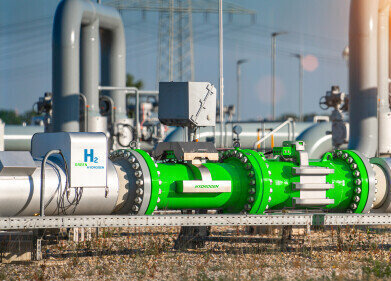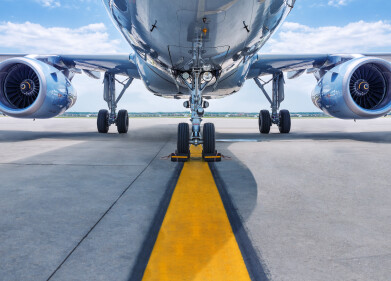Sustainable aviation fuel (SAF)
How Long Will the Energy Transition Take?
Jul 21 2022
With global temperatures on the rise and fossil fuel reserves rapidly depleting, the energy transition is urgent and long overdue. Burning fossil fuels like coal, oil and gas releases billions of tonnes of carbon dioxide (CO2) and other greenhouses gases into the atmosphere every year. These climate-warming gases contribute to all kinds of global issues, from rising sea levels and unseasonal floods to intense wildfires and multiyear droughts.
Around the world, governments and policymakers agree that transitioning to clean, climate-friendly energy sources is one of the most effective ways to combat climate change. So, how long will the energy transition take?
IEA aims for net-zero by 2050
The International Energy Agency, a Paris-based intergovernmental organisation founded in 1974, is one of many groups actively seeking to slash global energy-related CO2 emissions. Its Net Zero by 2050 pathway is ambitious but offers incredible benefits, if countries around the world step up.
“Our Roadmap shows the priority actions that are needed today to ensure the opportunity of net-zero emissions by 2050 - narrow but still achievable - is not lost,” says Fatih Birol, Executive Director at the IEA. “The scale and speed of the efforts demanded by this critical and formidable goal - our best chance of tackling climate change and limiting global warming to 1.5 °C - make this perhaps the greatest challenge humankind has ever faced.”
Investment in clean energy infrastructure is at the heart of the transition, with Birol maintaining international cooperation will boost global economic growth, create millions of new jobs and most importantly, secure a healthy planet for future generations.
Milestones set to keep the world on track
To guide the world along the Roadmap and help reach net zero by 2050, the IEA has set hundreds of milestones. These include:
- Curbing investment in new fossil fuel projects
- Restricting investment in coal plants
- Banning sales of internal combustion engine passenger cars by 2035
- Transitioning the global electricity sector to net-zero emissions by 2040
The energy transition isn’t just about good intentions. The IEA stresses that “tracking progress is essential to achieving climate and sustainable development goals”.
Taking net-zero to the skies
The UK is onboard with the IEA Roadmap and has laid out a series of policies and proposals to decarbonise the British economy and meet net-zero targets by 2050. This includes an exciting new Jet Zero strategy that aims to eliminate emissions within the domestic aviation industry by 2040.
“The UK is setting an example of the ambition needed to tackle climate change, and the Jet Zero strategy provides a clear path to building a greener aviation sector for generations to come,” says Transport Secretary Grant Shapps. “Rather than clipping the sector’s wings, our pathway recognises that decarbonisation offers huge economic benefits, creating the jobs and industries of the future and making sure UK businesses are at the forefront of this green revolution.”
Part of the goal is to ensure at least 10% of planes are powered by sustainable aviation fuel (SAF) by 2030. Find out more about the revolutionary new methods being used to distil climate-friendly jet fuel in ‘Energy Transition Guide - Fossil-based to Biobased Energy Sources’. Or if you want to know more about the latest alternative energy developments, check out the article 'Latest advances in Artificial Photosynthesis: a hidden gem in the realm of alternative energy technologies'.
Digital Edition
PIN 26.1 Feb/Mar 2025
March 2025
Analytical Instrumentation - Elemental Analysis for Quality and Process Control at Refineries, for Lubricants and Wear Metals in Engine Oils - Synthetic Lubricants: New Developments - Scaling...
View all digital editions
Events
Apr 08 2025 Birmingham, UK
Apr 08 2025 Kielce, Poland
Apr 08 2025 Ravenna, Italy
Apr 08 2025 Southampton, UK
Apr 08 2025 London, UK



















